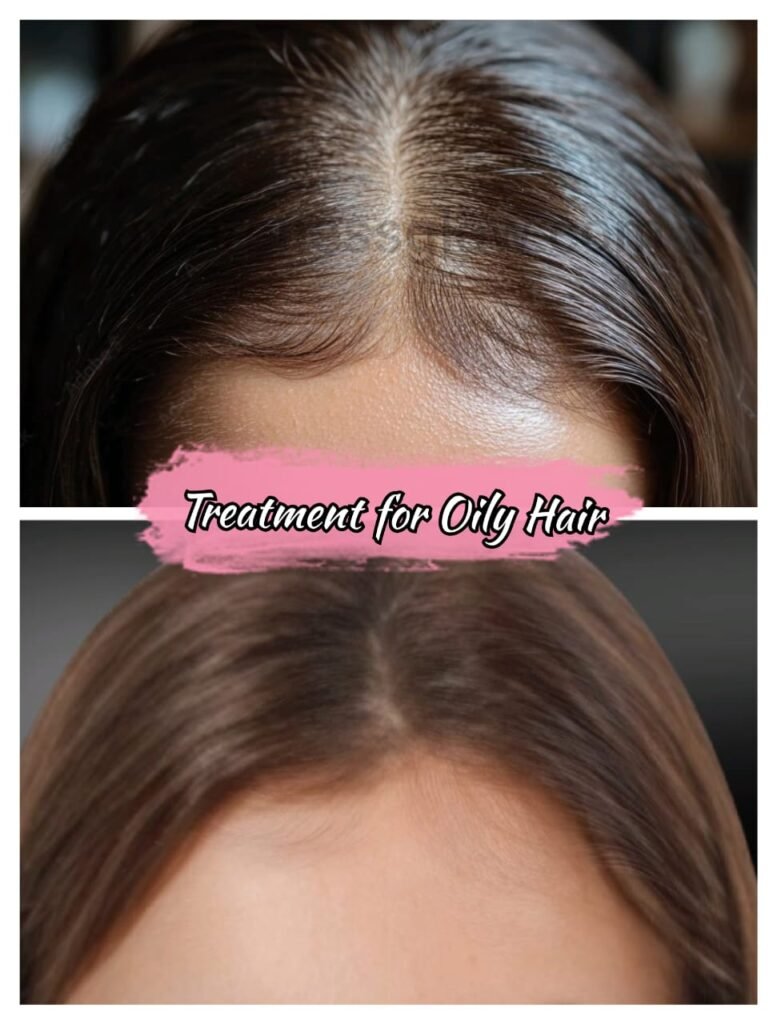
Treatment For Oily Hair
Introduction;
If you struggle with oily hair, you are not alone. Although too much oiliness can be bothersome, awareness of the causes and choice of suitable treatments and products can help control it. Let’s take this on together.
Why would one have oily hair?
Routines for Hair Care: Some hair care products aggravate oily hair. Overwashing or using strong shampoos strips the scalp of its natural oils, which triggers the sebaceous glands to produce more sebum. Conversely, greasy hair can result from a buildup of oil, dirt, and styling products on the scalp brought on by irregular washings or inadequate rinsing of hair products.
Long-term stress can reduce the body’s hormonal balance, causing oily hair and more sebum production. Moreover, stress can trigger specific actions like frequent hand-to-hair brushing or scratching of the scalp, which might spread dirt and oils from the hands into the hair.
Changes in hormones experienced during puberty, menstruation, pregnancy, and menopause can influence the capacity of the skin and scalp to generate oil. The sebaceous glands produce more sebum when androgens, a class of hormones including testosterone, are present in greater levels, which can lead to oily hair.
How can I free my hair from oil?
A weekly scalp treatment into your hair care routine will help regulate oil output and maintain a healthy scalp condition. Look for treatments that include salicylic acid or tea tree oil to help clear pores and reduce oiliness.
Limit Heat Styling: Overusing heat styling can lead to oiliness by depriving your hair of its natural oils. Use less hot tools—such as curling irons, blow dryers, and straighteners—and substitute heat-free styling methods when it’s practical.
How can one take care of oily hair?
Correct Approach for Hair Cleaning: Designed especially for oily hair, use a mild shampoo free of sulfates.
- Although frequent hair washing is advised, try not to overdo it, as this will rob the scalp of its natural oils and induce rebound oil generation.
- Target your shampoo application to the scalp, gently massaging to increase circulation and eliminate extra oil and buildup.
Handle with caution: Conditioner should only be applied to the lengths and ends of the hair; avoid the scalp, which generates the most oil.
Choose conditioners designed especially for oily hair or those light and oil-free.
How could someone with oily hair sleep?
The most straightforward approach to address the issue is to clean your hair just before bed. Use a mild shampoo to control and eliminate extra oil and buildup from your hair and scalp. Rinse everything thoroughly with lukewarm water to avoid any residue clinging about.
Change Your Diet and Lifestyle: Hormonal changes, diet, and stress can all affect how oily your hair is. A balanced diet, consistent hydration, stress control and enough sleep will help one have healthy hair and scalp.
